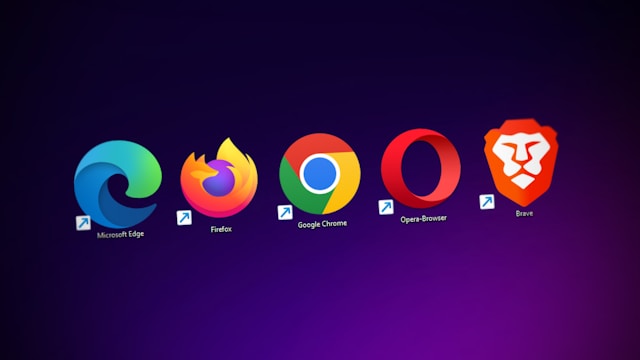In a world where almost everything happens online shopping, banking, working, and socializing your choice of web browser plays a major role in how fast, safe, and private your digital experience is. While most browsers offer the basics, only a few truly excel in all three areas: speed, security, and privacy. Whether you’re a casual user or a cybersecurity enthusiast, finding the best browser for your needs can make a significant difference.
This guide explores the best browsers for privacy, security, and speed, and helps you choose the right one for your online habits.
Why Browser Choice Matters
The web browser you use is your gateway to the internet. It’s responsible for loading websites, protecting you from malicious content, and controlling how much of your personal data is collected or shared. Some browsers prioritize performance and ease of use, while others put a premium on security and user privacy.
Choosing the right browser isn’t about picking the most popular one it’s about balancing performance with protection based on your specific needs.
How We Evaluated These Browsers
To determine the top browsers for speed, security, and privacy, we looked at several key factors:
-
Speed: Page loading times, resource consumption, and responsiveness
-
Security: Built-in protection against malware, phishing, and malicious websites; sandboxing; and regular security updates
-
Privacy: Tracking protection, cookie control, minimal data collection, and built-in privacy tools like VPNs or anonymization features
Now, let’s explore the top contenders.
Top Browsers for Speed, Security, and Privacy
1. Google Chrome

Why it’s popular: Google Chrome dominates the browser market due to its speed, simplicity, and massive extension library. It’s one of the fastest internet browsers available, consistently scoring high on performance benchmarks.
Security: Chrome is one of the most secure web browsers, with automatic updates, sandboxing, and phishing protection. It also warns users about unsafe sites and downloads.
Privacy: This is where Chrome falls short. While it does offer basic tracking prevention, it’s developed by Google a company known for extensive data collection. Many privacy advocates prefer alternatives with fewer ties to advertising networks.
Pros:
-
Fast and reliable
-
Frequent security updates
-
Huge extension ecosystem
Cons:
-
Limited privacy features
-
High memory usage
2. Mozilla Firefox

Why it’s a top pick: Firefox is a favorite among privacy-conscious users. It offers a great balance of speed, customization, and privacy features without compromising performance.
Security: Firefox is open-source, which allows for constant review by security researchers. It includes features like DNS over HTTPS, phishing protection, and automatic updates.
Privacy: Firefox excels in privacy. It blocks third-party trackers by default, supports private browsing mode, and has options to disable telemetry (usage tracking). It also partners with services like DuckDuckGo to provide private search experiences.
Pros:
-
Strong privacy controls
-
Open-source and transparent
-
Fast with many customizations
Cons:
-
Slightly slower than Chrome on some benchmarks
-
Fewer extensions than Chrome
3. Brave
Why it’s unique: Brave was designed with privacy in mind. It automatically blocks ads and trackers, and includes a privacy-focused search engine. It’s one of the best private browsers available today.
Security: Brave uses the same Chromium base as Chrome, which provides strong security. It also features HTTPS upgrades and built-in protection against fingerprinting.
Privacy: One of the best browsers for privacy, Brave blocks trackers by default and offers private browsing with Tor integration. It doesn’t collect user data, and its business model is based on optional, privacy-respecting ads.
Pros:
-
Ad/tracker blocking by default
-
Built-in Tor private browsing
-
Excellent performance
Cons:
-
Some users find the crypto wallet features unnecessary
-
Not ideal for users who prefer full compatibility with Google services
4. Microsoft Edge
Why it’s rising: The new Microsoft Edge is built on Chromium, making it fast and compatible with most web standards. It has improved dramatically in terms of usability and security.
Security: Edge includes Microsoft Defender SmartScreen, which protects against phishing and malware. It also features sandboxing and isolated browsing.
Privacy: Edge offers several levels of tracking prevention and a private browsing mode, but it still shares data with Microsoft by default. Users can adjust privacy settings for better control.
Pros:
-
Fast and responsive
-
Strong security tools
-
Compatible with Chrome extensions
Cons:
-
Shares some telemetry with Microsoft
-
Less transparent than Firefox or Brave
5. Safari
Why it’s ideal for Apple users: Safari is optimized for macOS and iOS, offering excellent speed and energy efficiency on Apple devices.
Security: Safari includes features like sandboxing, anti-phishing protection, and password breach alerts. It also integrates well with Apple’s iCloud Keychain.
Privacy: Safari uses Intelligent Tracking Prevention to block cross-site tracking and fingerprinting. Apple’s privacy stance makes Safari one of the better private browsers especially on iOS.
Pros:
-
Great for battery life on MacBooks
-
Seamless Apple ecosystem integration
-
Good privacy tools
Cons:
-
Only available on Apple devices
-
Limited extension support
6. Tor Browser
Why it’s privacy-first: If anonymity is your top priority, Tor Browser is unmatched. It routes traffic through a series of encrypted nodes, making it nearly impossible to track your activity.
Security: Tor is built on Firefox and hardened for privacy. It disables scripts, blocks non-HTTPS connections, and offers strong isolation for every session.
Privacy: This is one of the most private browsers in existence. It doesn’t collect or store user data, and it hides your IP address. However, this comes at the cost of speed.
Pros:
-
Maximum privacy and anonymity
-
Excellent for bypassing censorship
-
No tracking or data collection
Cons:
-
Very slow compared to other browsers
-
Some websites may block Tor traffic
7. Opera
Why it stands out: Opera combines speed and built-in privacy features like a free VPN and ad blocker. It’s a solid choice for users who want convenience and basic privacy.
Security: Opera includes malware and fraud protection. It also automatically upgrades to HTTPS when possible.
Privacy: While not the most private browser on this list, Opera’s built-in VPN and tracking blockers offer a decent level of protection for casual users.
Pros:
-
Built-in VPN
-
Ad blocker and sidebar tools
-
Lightweight and fast
Cons:
-
VPN is limited in scope
-
Owned by a Chinese consortium, raising privacy concerns for some
Quick Comparison Table
| Browser | Speed | Security | Privacy | Best For |
|---|---|---|---|---|
| Chrome | Excellent | Strong | Moderate | Performance and extensions |
| Firefox | Very Good | Very Strong | Excellent | Privacy-conscious users |
| Brave | Excellent | Strong | Excellent | Ad-free and private browsing |
| Edge | Excellent | Strong | Moderate | Windows users |
| Safari | Excellent | Strong | Very Good | Apple device users |
| Tor Browser | Poor | Excellent | Best-in-class | Maximum privacy/anonymity |
| Opera | Very Good | Good | Good | Casual users wanting privacy |
Which Browser Should You Use?
-
General Users: Google Chrome or Microsoft Edge for ease of use and compatibility
-
Privacy Advocates: Brave, Firefox, or Tor Browser
-
Apple Users: Safari
-
Users in Restricted Regions: Tor Browser or Opera with VPN
-
Low-resource Systems: Firefox or Opera
Final Thoughts
There’s no single “perfect” browser only the one that best aligns with your values and usage habits. Whether you prioritize speed, want a secure web browser to protect against threats, or are seeking the best private browsers to protect your data, the options above give you a solid foundation.

